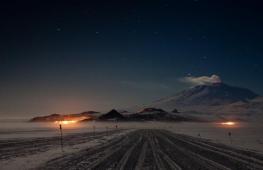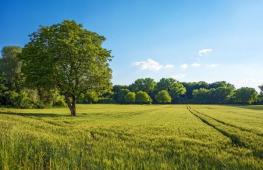Kingdom of norway
Norway
Kingdom of Norway is the land of fjords, ice and auroras. Norway is perhaps the most "heroic" country on the entire globe. Only Vikings and Valkyries are born here, for whom everything is nothing: cold, impenetrable forests, harsh northern nature. The very name of the country comes from the Old Norse word Norðrvegr - "the way to the north."
For tourists, Norway is interesting for its picturesque fjords and Oslo, the most comfortable capital of Northern Europe, excellent ski resorts and polar exotics, delicious and hearty cuisine (where salmon is the head of everything), interesting museums and excellent infrastructure. But the main thing that Norway can boast of is an indescribable atmosphere of cordiality, respect for individuality and a sincere desire to make the guest like it in its harsh but charming northern lands.
general information
- Form of government- a constitutional monarchy.
- King— Harald V.
- Capital of Norway- Oslo.
- Administrative-territorial structure: Norway is subdivided into 19 counties (counties), which are combined into 5 main unofficial regions.
- official languages- Norwegian (bokmål and nynorsk).
Politics

Norway is a real kingdom, with a king and a queen. Norway has a monarchy, but parliament has political power. Norwegians love and protect their monarchy. The adult population, to a greater extent than the younger ones, are proud of the fact that they have preserved the royal family.
"All for Norway" - this motto is written on the coat of arms of the King of Norway. And for many years now it has been the motto for the Kings of Norway.
Climate of Norway
Thanks to the warm current of the Gulf Stream, the climate in Norway is quite mild. The sea off the coast of northern Norway, located above the Arctic Circle, does not freeze even in winter, and in summer, even in the northern part of the country, the temperature rises to 20 ° C. In the coastal areas - a temperate maritime climate (in the far north - subarctic). In inland areas, especially in mountainous areas, the climate is continental - hotter in summer and colder in winter.
But be careful, Norway has an incredibly changeable climate. Fog, sun, harsh wind, rain can change with amazing frequency. The Norwegians even came up with a saying: “Don’t like our weather? Wait 15 minutes."

Kingdom population
The population is less than 5 million people. More than 1.5 million Norwegians live in the capital Oslo and its suburbs. Any city with a population of over 30,000 is considered large. The Scandinavian countries (Norway and Iceland) have the highest birth rate in Europe among the indigenous, and not the alien population. The Scandinavians initially relied on improving the quality of life of the child, and not on increasing the number of births. All Norwegians love and appreciate the sea. They prefer to live no further than 200–300 meters from the water, or in its direct line of sight. Those who live in the depths of the country still buy a second house by the sea. Even boats or boats have 80% of the population.

Natural resources and attitude to them
The nature of Norway is diverse. Forests, mountains, rivers, lakes, the sea are in their original state. The attitude towards nature is very careful. There are no poachers, there is practically no garbage either. Thanks to the sea, there are no mosquitoes and other insects.
Norway has the longest fjords in the world. A fjord is a wide, often winding and deep channel with rocky shores, piercing from the sea deep into the mainland for many kilometers.

By law, any resident of the country and its guest has the right to unhindered access to all natural resources without restrictions - both in the forest and on the sea. You can walk and swim wherever you want. If the land is private or fenced, it is advisable to politely ask the owners for permission to visit it.
Norway is the northernmost point of mainland Europe. It is called the North Cape, it is located on the edge of a cliff far to the north. In good weather, you can see the edge of the Arctic glaciers there.
Standard of living

Since 2009, Norway has topped the list of countries in the Human Development Index. Norway is considered a safe country. The law is observed here, there is no crime, and theft is considered something unthinkable for most Norwegians. Only large retail chains have frames-detectors of theft of goods at the exit, or surveillance cameras. Otherwise, they are practically nowhere to be found. The average salary for many Norwegians can be up to 5-7 thousand euros per month.
It is almost impossible to meet beggars on the streets. The only exceptions are big cities, and almost always it is one of the immigrants. And the murder of at least one person is discussed on national TV and radio for at least a week.
culture

In Norway, education and culture are at the forefront. Here, for the first time in the world, back in 1979, compulsory primary education was introduced. In elementary school, not only English is taught (from the first grade), but also, in addition to traditional school subjects, ecology and art. 100% of Norwegians speak, write and read English perfectly. Children learn the language from the age of 5-6 or earlier. Any child over 10 can easily communicate with you in English. The exception is pensioners 75+.
By the way, Norway spends three times more on education than on healthcare, and four times more on healthcare than on defense. At the same time, the Norwegian Air Force guards not only the borders of their country, but also the airspace of Iceland, which does not have its own army at all.
Interesting features from the everyday life of a Norwegian
Life throughout the country flows very calmly and measuredly. Norwegians start working at about 10 am, and by 4 am they are already finishing. Only restaurants or supermarkets are open on weekends. Respect for private property is observed everywhere. During the day, most houses are not locked at all, except for housing in big cities - and this is completely safe. Visiting is by invitation.
Bicycles are the main means of transportation in Norway. Norwegians prefer this type of transport in any weather.
The average salary in Norway fluctuates around the mark of 5,000-6,000 € per month.
In Norway, it is not customary to throw away empty containers, all Norwegian-made cans and bottles are handed over - there are special machines in stores that count bottles and issue a receipt. The check is presented at the cash desk, where a certain amount is issued.
All Norwegians speak at least two languages - Norwegian and English.
Almost 100% of the population is connected to high-speed Internet. Due to the climate and long distances, Norwegians spend a lot of time online.
Four out of five Norwegians have their own boat, or at least a boat. Norwegians love the sea. Apparently, the spiritual heritage of the Viking ancestors is affecting.
Almost all of Norway's electricity comes from hydroelectric power plants.
A city with a population of over 25-30 thousand people in Norway is considered large.
There is no deforestation in Norway at all - Norwegians prefer to buy wood from countries that do not care about their nature so much. For example, in Russia
On country roads, there are often tables with vegetables and fruits, and a price tag and a jar for money are nearby. How much you took - so much and put the bills. Nobody is watching. Cheating is simply not accepted here.
Contrary to popular belief, not all of Norway is cold. In the south of the country in winter there may be no snow at all, and the thermometer may not fall below zero.
There are few multi-storey and residential complexes, almost none. Most people live in private houses. The houses are simple but comfortable. They are usually painted red or white, often with a field grass lawn on the roof.

Food in Norway
Products in Norway are of the highest quality. Especially dairy. By the way, here are the most expensive hamburgers in Europe.
Fish in Norway is an incredible variety, so sea and lake fishing is highly developed in the country. Fishing licenses are not needed, which encourages many Europeans to come to Norway in auto-refrigerators, live in the cheapest houses or tents, fish for two weeks without a break, providing themselves with fish for 6 months in advance, and leave back.
On country roads, usually near a farm, you can often find a table with vegetables or fruits with prices. On it there will be scales, shopping bags, and a jar for money. This is a type of self-service. Everything is built on trust.

The local cuisine is simple and unpretentious. The Norwegians have succeeded in preparing fish recipes: dried, salted, smoked, etc. Although it is almost impossible to find a sushi restaurant or cafe serving sushi. They are only in Oslo, Bergen and Stavanger. In other cities there is only one such institution.
You can't just buy strong alcohol in Norway! It is sold only in special stores - Vinmonopolet (alcohol monopoly), owned by the state. They work strictly Monday-Friday, in the capital there are Saturday shops that are open until 19:00 maximum. Alcohol is very expensive.
Shopping and shops in Norway
The opening hours of stores in different regions of the country vary greatly. In large cities, department stores and large stores are usually open Monday to Friday from 9:00-10:00 to 17:00, Thursday from 9:00-10:00 to 19:00-20:00, and on Saturday - from 9:00–10:00 to 15:00–16:00. Many supermarkets and large shopping complexes are open until late in the evening. Kiosks and small private shops are also often open in the evenings and weekends until 22:00–23:00. In summer, during the sales season, discounts in stores reach 50-70%.
Tourist
The attitude towards foreigners is restrained, but friendly. Norwegians calmly invite guests, share food, help with advice. Interestingly, in recent years, Norway has even increased the influx of immigrants from other countries.
The stories that Norway is a very expensive country are true. In general, all goods are expensive, services (for example, taxis) will cost even more.

If you come as a tourist, do not forget to ask for Tax-free. It can be issued almost everywhere and for any goods, from the purchase amount equivalent to 50 euros. As a result, you can return up to 30% of the money spent.



